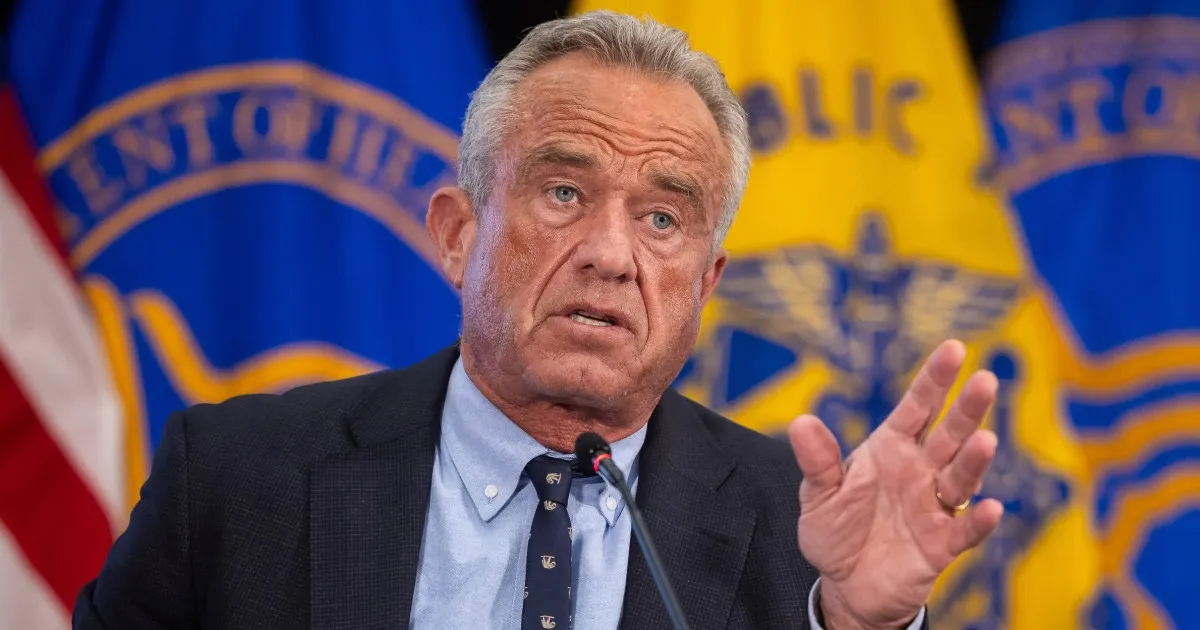
On Tuesday, the Trump administration unveiled a much-anticipated follow-up to the “Make America Healthy Again” (MAHA) report, titled “Make Our Children Healthy Again.” This report outlines several steps to improve kids’ health, focusing on better nutrition, increased exercise, and a review of vaccines and medications. However, it notably lacks specifics and refrains from addressing critical issues such as the regulation of pesticides and ultra-processed foods.
The second installment of the MAHA report is designed to build upon the initial assessment released in May, where Health Secretary Robert F. Kennedy Jr. described children as “the sickest generation in American history.” This latest report aims to serve as a roadmap for addressing the rising rates of childhood chronic diseases. During a briefing, Kennedy expressed optimism about the report, stating, “A lot of these 128 recommendations are the things that I’ve been dreaming about,” and labeled it a “historical collaboration” among health professionals, educators, and industry stakeholders.
The report emphasizes four key areas: increased investment in research, policy reforms including a new “vaccine framework,” raising public awareness of health issues impacting children, and fostering partnerships with the private sector. However, it conspicuously omits discussions on food insecurity and gun violence, both of which are significant threats to children’s health. When questioned about rising gun deaths among children, Kennedy described the issue as “complex” and suggested, without evidence, that factors such as psychiatric drugs and video games could be contributing to gun violence.
Many public health experts have pointed out that while the report’s intentions are commendable, it lacks a well-defined strategy. Dr. Georges Benjamin, executive director of the American Public Health Association, remarked, “If one of my grad students gave this to me, I’d send them back to work.” Similarly, Marion Nestle, a professor emerita at New York University, criticized the report for being “short of specifics and weak on regulatory action,” emphasizing that it primarily calls for more research rather than concrete actions to enhance the diets of America’s children.
The report's plans to limit ultra-processed foods and harmful chemicals appear to fall short of expectations, as Nestle noted. “The report seems to twist itself into knots to make it clear that it will not be infringing upon food companies,” she stated. Avenel Joseph, vice president of policy at the Robert Wood Johnson Foundation, echoed these concerns, suggesting that the report defers to industry practices for environmental chemicals instead of proposing meaningful changes.
Established by President Donald Trump through a February executive order, the MAHA commission was tasked with identifying the root causes of chronic diseases such as diabetes and obesity in children. The commission includes high-ranking officials, including Agriculture Secretary Brooke Rollins and Environmental Protection Agency Administrator Lee Zeldin. The new report reflects many of Kennedy’s publicly shared beliefs, including concerns over over-prescription of medications and excessive screen time impacting children’s mental health.
One of Kennedy’s focal points as Health Secretary has been the review of childhood vaccinations. The new report calls for a comprehensive “vaccine framework,” which includes an evaluation of the childhood vaccine schedule and a commitment to transparency in reporting vaccine injuries. Kennedy criticized the current system for reporting vaccine injuries as “broken,” claiming that many such reports remain underreported.
The report also includes strategies for “Increasing Public Awareness and Knowledge,” aiming to empower parents with reliable health and nutrition information. It mentions potential health risks associated with children’s screen time, vaping products, and even alcohol use. Notably, the administration plans to ease restrictions for small-dairy farmers to sell their milk, a move that has drawn both support and criticism.
While the renewed focus on improving children’s health is welcomed, the report has faced criticism for failing to deliver concrete strategies and regulatory actions. As experts point out, the time for exploring theoretical solutions has passed; comprehensive legislation and practical measures are crucial to ensure a healthier future for America’s children. The ongoing discussions around these issues are vital for fostering a healthier environment and addressing the alarming trends in children’s health.